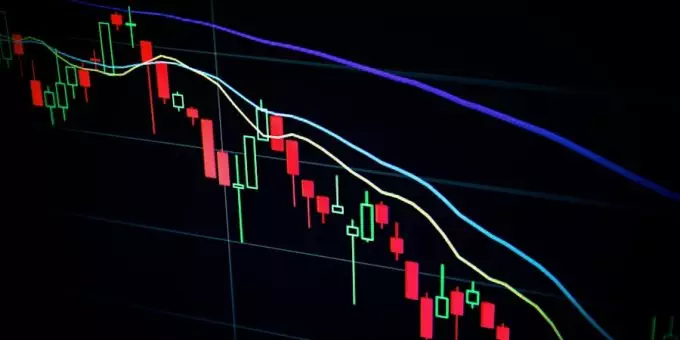
In recent years, there has been a significant surge in the popularity of cryptocurrencies and forex trading. These markets have become more accessible to individual investors, thanks to advancements in technology and the rise of online trading platforms. Cryptocurrencies like Bitcoin have captured the attention of investors worldwide, while forex trading remains one of the largest financial markets globally. Both markets offer unique opportunities for investors to diversify their portfolios and potentially earn significant returns.
What is Bitcoin and How Does it Work?
Bitcoin is a digital currency that operates on a decentralized network called blockchain. This technology allows for secure and transparent transactions without the need for intermediaries like banks. Bitcoin transactions are processed and verified by a network of computers known as miners, who use complex algorithms to validate transactions and add them to the blockchain. One of the key advantages of using Bitcoin is its ability to provide fast and low-cost transactions compared to traditional banking systems. However, Bitcoin also faces challenges such as price volatility and regulatory uncertainties.
Understanding Forex Trading: The Basics
Forex trading, also known as foreign exchange trading, involves buying and selling currency pairs in the global marketplace. The most commonly traded currency pairs include EUR/USD, USD/JPY, and GBP/USD. Traders speculate on the price movements of these pairs based on various factors such as economic indicators, geopolitical events, and market sentiment. The forex market operates 24 hours a day, five days a week, allowing traders to take advantage of different time zones and market sessions.
Differences in Trading Mechanisms: Centralized vs Decentralized
Forex trading is centralized and heavily regulated by financial institutions and government bodies. Banks act as intermediaries in forex transactions, providing liquidity and setting exchange rates. On the other hand, Bitcoin trading is decentralized and operates on a peer-to-peer network without a central authority. This gives users more control over their funds but also exposes them to higher risks such as hacking and fraud. Both centralized and decentralized trading mechanisms have their own set of advantages and disadvantages, making it essential for investors to understand the differences before participating in either market.
Volatility: Comparing Bitcoin and Forex Markets
Both Bitcoin and forex markets are known for their high volatility, which can lead to significant price fluctuations within short periods. Factors such as market demand, regulatory developments, and macroeconomic trends can influence the volatility of these markets. While Bitcoin is often more volatile than major currency pairs in the forex market, both markets carry inherent risks that investors should be aware of before trading.
Trading Hours: 24/7 vs Weekdays Only
One key difference between Bitcoin and forex trading is their operating hours. The forex market operates 24 hours a day from Monday to Friday, allowing traders to participate in different sessions such as Asian, European, and North American markets. In contrast, Bitcoin trading is available 24/7 without any breaks or holidays. This continuous trading schedule provides flexibility for investors but also increases the risk of price fluctuations during off-peak hours.
Liquidity: Which Market is More Liquid?
Market liquidity refers to the ease with which assets can be bought or sold without causing significant price changes. In general, the forex market is more liquid than the Bitcoin market due to its large trading volumes and participation from institutional investors. High liquidity in the forex market ensures that traders can enter and exit positions quickly without impacting prices significantly. On the other hand, lower liquidity in the Bitcoin market can lead to wider bid-ask spreads and increased price slippage.
Market Size: Comparing Bitcoin and Forex Trading Volumes
The forex market is one of the largest financial markets globally, with an average daily trading volume exceeding $6 trillion. In comparison, the Bitcoin market has a smaller trading volume but has experienced rapid growth in recent years due to increased adoption and interest from institutional investors. The size of a market can impact factors such as liquidity, volatility, and price stability, making it essential for traders to consider when choosing between Bitcoin and forex trading.
Regulation: How are Bitcoin and Forex Markets Regulated?
Regulation plays a crucial role in shaping investor confidence and market integrity in both Bitcoin and forex markets. While forex trading is heavily regulated by government authorities such as central banks and financial regulators, Bitcoin operates in a less regulated environment with varying degrees of oversight depending on the jurisdiction. Regulation can provide protection for investors against fraud and manipulation but may also impose restrictions on trading activities and innovation in the market.
Risks and Rewards: Comparing the Risks and Rewards of Bitcoin and Forex Trading
Both Bitcoin and forex trading offer unique risks and rewards for investors seeking opportunities in financial markets. While forex trading provides access to a diverse range of currency pairs with relatively lower volatility compared to Bitcoin, it also carries risks such as leverage exposure and geopolitical uncertainties. On the other hand, Bitcoin offers potential for high returns but comes with risks related to security breaches, regulatory changes, and market manipulation. Understanding these risks is essential for investors to make informed decisions when choosing between Bitcoin and forex trading.
Which Market is Right for You?
In conclusion, both Bitcoin and forex trading present opportunities for investors to diversify their portfolios and potentially earn significant returns. The choice between these markets depends on factors such as risk tolerance, investment goals, time horizon, and familiarity with each market’s characteristics. Investors looking for high liquidity, lower volatility, and regulatory oversight may prefer forex trading, while those seeking innovation, decentralization, and potential high returns may lean towards Bitcoin trading. Ultimately, it is essential for investors to conduct thorough research and seek professional advice before participating in either market to mitigate risks and maximize rewards based on their individual preferences and circumstances.
In summary, both Bitcoin and forex trading offer unique advantages and risks that cater to different types of investors. It is crucial for individuals to carefully assess their own financial situation, risk tolerance, and investment objectives before deciding which market to enter. By understanding the intricacies of each market and seeking guidance from experts, investors can make informed decisions that align with their goals and ultimately enhance their overall investment strategy.









